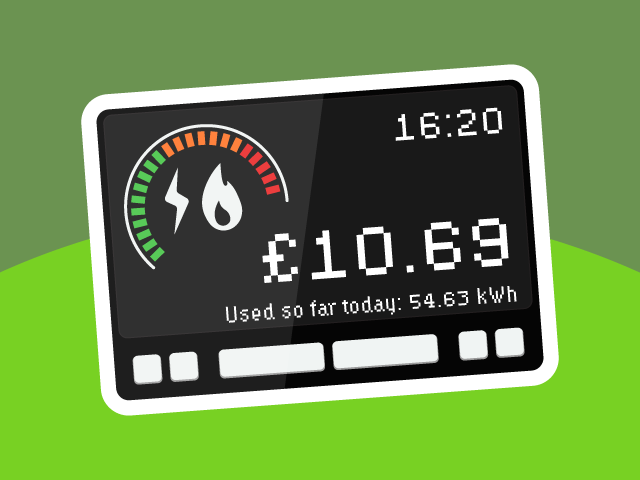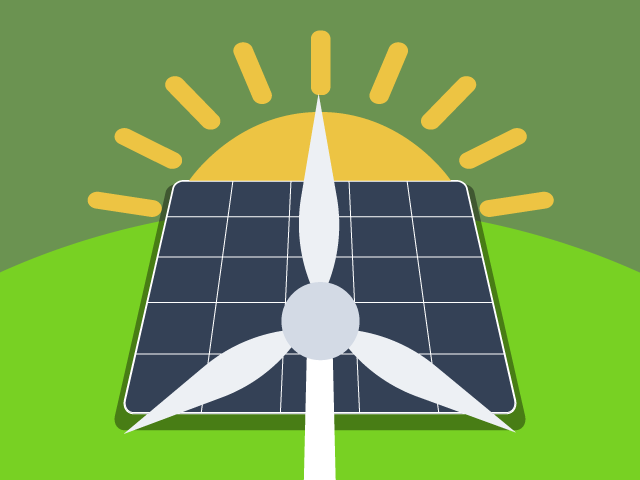Everything You Need to Know About Energy Smart Meters in the UK
Reading Time: 7 minutes
Energy smart meters are the latest technology in energy monitoring. Learn how they work, their benefits, and how to install one in the UK. These meters have been designed to help households keep track of their energy usage, reduce their carbon footprint, and ultimately save money. This article will cover everything you need to know […]

Energy smart meters are the latest technology in energy monitoring. Learn how they work, their benefits, and how to install one in the UK. These meters have been designed to help households keep track of their energy usage, reduce their carbon footprint, and ultimately save money.
This article will cover everything you need to know about energy smart meters, including installation, how to read them, benefits and troubleshooting. Before we move on to the big stuff, let's see what all the fuss is about.
What is a smart meter
A smart energy meter records your energy usage in half-hourly intervals. Having one in your house is convenient because it automatically sends this information to your energy supplier, so you don't have to give them meter readings anymore. You can say goodbye to climbing up ladders with a torch to do your meter readings.
How do smart meters send readings
How do smart meters send readings, and are they accurate? Smart meters send readings using a dedicated secure wireless network and don't rely on your wifi. You don't even need internet in your home to use a smart meter.
As for accuracy, the smart meter sends readings to your energy supplier at least once a day. This means your supplier always has up-to-date information about your energy usage, making them more accurate than manual readings. If you'd like to know more about the techy bits, check out this easy-to-read leaflet from the Department of Energy and Climate Change, which illustrates the main parts of smart metering systems.
Are smart meters secure
Getting a new tech gadget like a smart meter can feel a bit overwhelming, right? You might be wondering, "Are smart meters secure?" or "Do they pose any security risks?" These are valid questions, and it's great to address them early on.
Here's the scoop: Your energy supplier uses the data from your smart meter to provide accurate bills and help you save energy. They can't share this data with anyone else without your permission.
The Smart Meter Network is built to be super reliable and secure, minimising any potential vulnerabilities. The smart meter sends your energy readings to the Data and Communications Company (DCC), a government-owned entity responsible for managing the smart meter network.
So, rest easy knowing that smart meters are designed with your privacy and security in mind! You don't have to take our word for it, here's the information straight from the expert:
"Each message received by a meter is authenticated via a simple cryptographic algorithm where the meters all have unique authentication keys. In order to start attacking the meter, you have to get past this authenticity check, and the only entity that can generate the authentication codes is either the DCC or the meter itself."
- Dr. Ian Levy, The National Cyber Security Centre
What are the benefits of having a smart meter
- You'll get more accurate bills
Smart meters automatically send your energy usage data to your supplier, so you'll no longer have to give them meter readings. This means your bills will be based on your actual usage rather than estimations.
- You can see how much energy you're using
You can use your smart meter's in-home display (IHD) to see how much energy you use in real-time. This can help you identify areas where you can save energy.
- You can set up alerts
You can set up alerts on your smart meter to let you know when you're using a lot of energy or about to reach your energy limit. This can help you to avoid expensive energy bills.
- You can switch energy suppliers more easily
Smart meters make it easier to switch energy suppliers, as your new supplier can access your energy usage data directly from your meter.
- Reduced carbon footprint
By tracking your energy usage, you'll identify key areas where you can reduce your energy consumption and, ultimately, your carbon footprint.

How do I get a smart meter
Thinking about getting a smart meter installed? It's a pretty straightforward process and usually takes about two weeks from start to finish. Here's a step-by-step guide to help you get your smart meter up and running:
- Book Your Appointment: You can book your smart meter installation online or over the phone. Some providers, like Octopus Energy, release new appointment slots on Mondays, so it's a good idea to set a reminder.
- Initial Consultation: During this step, you'll provide your supplier with some basic information such as your address and current meter number. Rest assured, you won't be asked for sensitive information like your bank or card details.
- Home Visit: An engineer will come to your home to remove your old meter and install the new smart meter. The installation process is usually quick and takes around 30 minutes.
- Get Connected: After installation, your smart meter will be connected to the smart meter grid via your chosen energy provider. This connection process can take up to two weeks.
- Set Up Your Online Account: Once everything is set up, you'll need to activate your smart meter account online. This will help you get familiar with your new gadget and make the most of its features.
By following these steps, your smart meter will be up and running in no time. It will help you manage your energy usage more efficiently and possibly save on your bills. If you have any questions or need assistance at any point, your energy provider will be happy to help.
Will I have to pay for a smart meter
No, you will not have to pay for a smart meter.
The government is providing £11.3 billion to support the roll-out, which is being delivered by energy suppliers. In light of this initiative, the government believes smart meters will play a key role in decarbonizing the energy system in the long run.
Smart meters will help reduce the UK's reliance on fossil fuels by making it easier for consumers to switch to renewable energy tariffs and providing data that can be used to develop new smart grid technologies.
The roll-out of smart meters is underway and expected to be completed by 2025. All homes and businesses in Great Britain will be offered a smart meter by their energy supplier.
Please note that smart meters are free to install and there is no obligation to switch energy suppliers when you get one.
What if I don't want a smart meter
According to Statista, almost half of the UK's population has already opted for a smart meter. As seen below, the North East, with 56%, is occupied by the first spot, closely followed by the North West. Opting for smart meters is ideal from both consumers and the industry's points of view, as it's an important pillar for sustainable development in the future. However, smart meters are not compulsory, and you can opt-out. If you do not want a smart meter, contact your energy supplier and let them know.

Smart meters troubleshooting
- Problems with the installation
The most common problem with smart meters is that they are not installed correctly. This can lead to problems with the meter itself or how it communicates with your energy supplier.
- Problems with the display
Some people have reported problems with the display on their smart meter. The display may be difficult to read or not show the correct information. If you have any problems with the display on your smart meter, you should contact your energy supplier.
- Problems with the communication network
The smart meter network is a secure wireless network that sends readings from your meter to your energy supplier. If the communication network has problems, it may not be able to send readings.
This can lead to estimated bills or problems with your smart meter. If you have any problems with the communication network, you should contact your energy supplier.
- Problems with the meter itself
In rare cases, the smart meter itself may have problems. This could be due to a manufacturing fault or damage. If the engineer finds the smart meter faulty, they will replace it for free. In the meantime, you must manually provide your energy supplier with meter readings.
Back to you: optin-in or out of a smart meter
To sum it up, deciding whether to get a smart meter involves considering the advantages and potential concerns:
Benefits:
- Accurate Billing: Ensures precise billing based on actual usage.
- Energy Management: Provides real-time data to help reduce consumption and save money.
- Convenience: Automates meter readings, eliminating manual checks.
- Environmental Impact: Helps reduce overall energy consumption.
Concerns:
- Privacy and Security: Smart meters have robust security measures, but concerns about data privacy persist.
- Installation Process: Requires a home visit by an engineer, which might be a concern for some.
- Compatibility: Ensuring the meter's compatibility with future energy suppliers is essential.
The decision to opt for a smart meter depends on your comfort with these factors. A smart meter can be a valuable tool if the benefits align with your needs and you are comfortable with the installation process. If you have concerns, discussing them with your energy provider can help address them.
For more information, consult resources from Ofgem and Citizens Advice.*



